The best way to find out if you can trust somebody is to trust them, Ernest Hemingway
In Gangtey, Bhutan I get lost in my hotel room. I wake up in the middle of the night to pitch blackness. Michael must have forgotten to leave on the light in the bathroom, I think. But I need to use the toilet, and so I reach blindly for my crutches on the floor beside my bed.
I remember that it is a straight line to the bathroom, only a few steps from my bed to the door; even on crutches I should be able to make it. But as I move through the darkness, instead of finding the bathroom, I run into a barrier. A wooden frame. A mirror, I think. To the left, I feel a table and two bottles of water. Michael’s cell phone. A charging cord. I remember the bottles of water from the night before, but I can’t picture in my mind where we left them. I can’t picture the layout of the room.
To my right, perpendicular to the framed mirror, I touch an even row of boards. Where did this wall come from? I wonder. My mind starts to spin in a disoriented whirl. My fingers scramble as they scan the wall, searching for a light switch. My breath comes in rapid bursts. My heart panics. I can’t even think which direction my bed is, and so I call out, “Michael, help me.”
I hear his voice from his bed, muffled. Something about the power being out. Then sounds of movement, followed by a shadow of moonlight from the window.
The bottles appear on the desk. The wall becomes the wooden door on the closet across from my bed. I left it open last night. The bathroom door to my right. Still trembling, I make my way to the bathroom and then back into bed. Safe under a layer of covers, I start to cry.
I remind myself to breathe. Somewhere there is a lesson in this.
Trust, the word comes to me.
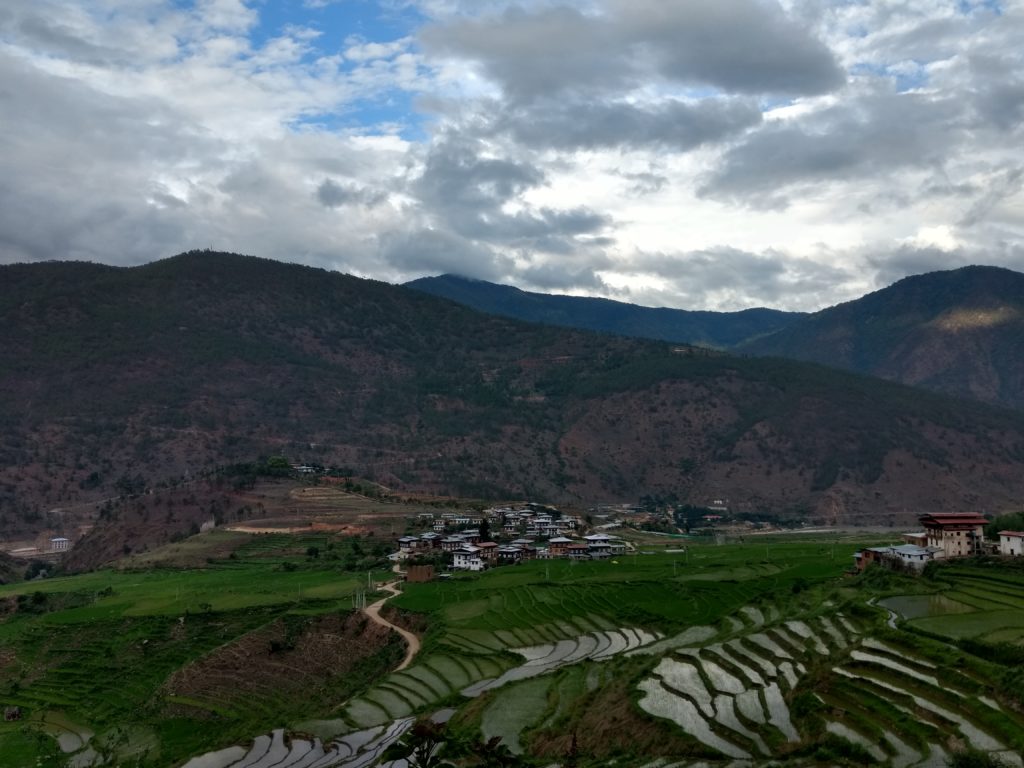
Being differently-abled these past few weeks, I quickly realize I must trust the people around me for help. It can be a struggle for someone like me, someone who in normal circumstances prides herself on her strength, on her independence. Trust in this context means admitting to my own weaknesses, to my own vulnerabilities. Trust means giving a piece of myself to people, sometimes people I don’t even know.
When I left Italy, I had a lot of anxiety about making it to Nepal. I was still traveling alone and was afraid that the airline wouldn’t come through with its promise to help. I arrived at the airport five hours early, prepared to crutch my way to check-in, hauling all of my gear, and then slowly, slowly make my way through customs, security, and the enormity of Fiumicino airport.
Of course, the instant I spotted the information desk, I stopped, exhausted, and the kind woman working sent for a wheelchair and a helper who guided me through the whole ordeal in a matter of minutes. I can now see that at the root of my anxiety was a lack of trust in what turned out to be straightforward and simple process.
I’ll admit that it can be hard to fight the fear. It can be hard to let go and walk into the unknown.
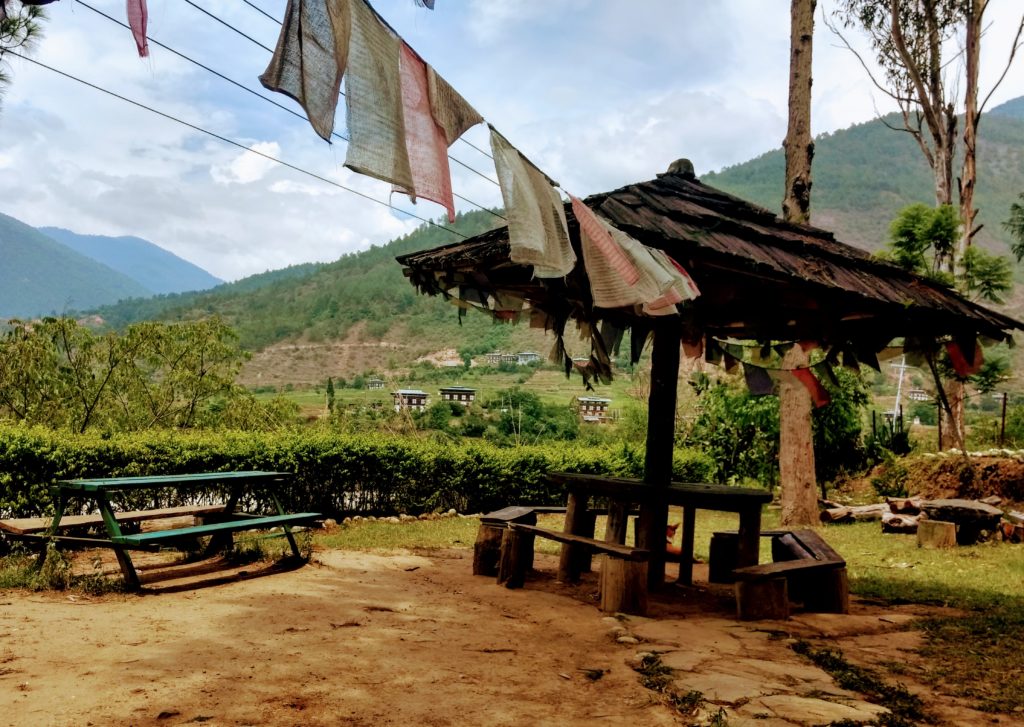
Increasingly we live in a world that says the other cannot be trusted, a world that says danger is omnipresent, that says everybody is a potential threat to our well being. In my mind, this has dire consequences; when you don’t trust you walk through the world with a protective barrier surrounding you, your guard always up, always anticipating disaster.
I think many are afraid to trust out of self-protection; to openly trust makes one vulnerable to the potential of harm. If a person has a history of being betrayed in some way, it makes it even more challenging to trust others again in the future.
I’m not denying that bad things happen nor am I denying that there is a certain amount of risk inherent in trust. Trust, by definition, involves taking a chance. But if we refuse to trust because of the actions of people in our past, if we refuse to trust out of a fear of the possibility of bad things happening, are we simultaneously shutting down the possibility of good things happening, whether relationships, experiences, or ultimately, our own happiness?
Trust isn’t a guarantee that everything will turn out the way you want it to; rather it is an act of faith. Trust means letting go of the fear that something bad could happen. When you open yourself up to another, physically or emotionally, you’re giving them a gift; you’re giving them the benefit of the doubt.
In The Geography of Bliss Eric Weiner claims that people who trust are more likely to be happy. Trust, I think, becomes a sort of glue that bonds us to the other. It lets us know that we’re not alone in this big, messy thing called life. Trust fuses people together, whether within established communities or between strangers. And these bonds nurture happiness. In the end, these bonds help us to survive. Trust in this sense is about connectivity between individuals, but I think this idea expands to life itself, to a broader trust in the universe or in humanity as a whole.
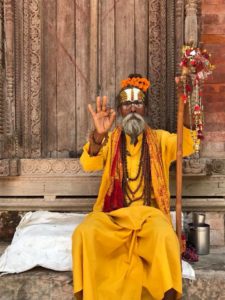
It’s never difficult for me to say that I believe in the good in others, but this experience has taught me to actively live these words. Through my experiences I’m learning to place my trust in the unknown, in the chaos of life. I’m learning to say, Hey world, I’m still here, and I know you’ll take care of me. When I feel my fear creeping in, I stop and remind myself that the world is full of helpers, and if I remain patient I will find one. I realize that if I can’t let go of my fear and place my trust in the world, I should just return home.
I won’t let that happen.
In time I come to trust strangers to help me carry my belongings. I trust them to help me navigate unfamiliar streets. In Kathmandu I trust that cars will stop as I zig zag across the muddy road. At the Thimpu farmer’s market, I trust Karma as he wheels me down a steep and slick ramp. At Swayambhunath Temple I trust Michael as he holds me up while I hop up and down uneven steps. At Punakha Dzong I trust Sangay and Karma as they link their arms together, creating a chair to carry me up a flight of stairs. I trust Sangay to help read me, to know when I need more support, to know when I can keep going, and to know when I’ve reached my limit.
Though interestingly, as I’ve worked on this piece, the more I’ve come to realize that one of the most important lessons to learn is that I must also trust myself. A person can’t learn to trust others if she doesn’t start by trusting within.
I trust myself to push my body forward without overstepping itself. I trust my voice to ask for help when I need it. I trust my heart to just keep going, one careful step at a time. I trust my arms to lift my body as I scootch backwards to climb a narrow staircase. I trust my instincts to find the secure path, to maintain balance as I crutch across root-lined trails, pitted asphalt, and broken sidewalks.
I trust that my body knows how to heal.
I trust that I will forgive myself when I make mistakes.
The morning after I get lost in my room I tell Sangay about my experience in the dark. He nods thoughtfully and says it’s about seeing. “You could not see with your eyes in the darkness,” he says, “but you can still look inside to your inner eye to see the room.”
I do not feel so enlightened, but when Sangay tells me I can close my eyes and walk with my crutches across the open courtyard of the monastery where we are visiting, I trust him and take ten hesitant steps, eyes closed, before I hit a loose board and startle. I know that I can do this. And I know that Sangay and Michael will not let me fall.
So I try again, focusing on my breath. And again and again, each step becoming a bit more mindful, I close my eyes and trust myself to see.




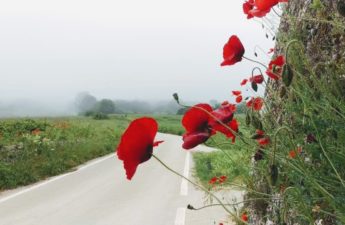
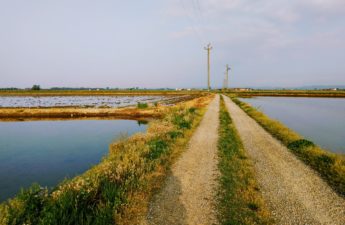
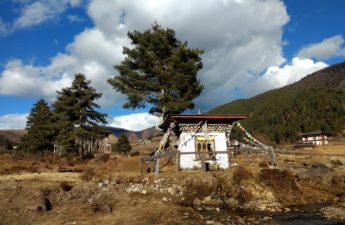
Once again you’ve distilled a concept perfectly. Trusting ourselves to trust others is absolutely key to living well in the world — I can’t count the things I would have missed out on in life if I’d been suspicious of everyone’s motives all the time. Sure, it’s hard after your trust has been broken, but as another wise friend of mine once reminded me, we have to “assume the best” — assume that the majority of people we meet are NOT out to get us, and in fact actually wish us well and want to help us to the extent that they can.
Your story is also a good reminder f how important it is to be trustworthy — to be the one someone else can rely on. Sometimes it comes naturally, and at other times not so much, but it’s worth it!
It’s hard when you’ve been betrayed in the past — but I think it is so important to not judge the people in the present by the people in the past. If you always are walking around assuming that people are out to get you, you’ll never relax in the experience of the moment.
Funny, but this reminds me of an experience I had in Brazil a few years ago. I was walking around one of the neighborhoods in Salvador, a neighborhood that my travel book had said for me not to go to. It wasn’t a crime-ridden area, clearly. It was just people, going to work and visiting with friends and family. I had this profound realization that this neighborhood was exactly like neighborhoods in San Francisco and that at my core I knew that the people there weren’t going to harm me, that they would help me in the off-chance that something bad did happen to me. In the end, I realized that I could walk freely because I trusted that everything would be okay. Of course, I’m not arguing to not be aware of your surroundings — there’s a fine line between trust and being stupid!
And yes, you have to BE trustworthy in order to be trusting. I think that’s so key.
xo
I’ve thought about a lot of things as I reread this piece on trust. I agree with your ideas and conclusions. So many people with overwhelming obstacles—physical and mental—do remarkable feats. Special olympics is one. It’s probably why some patients recover satisfactorily from injuries, surgeries and illnesses; and even recoveries from losses. Trust. I loved your writing.
Oh, thanks Mumsie! Still thinking a lot about it — so much came up as I was writing this, and it was hard to put it all together! Love you!